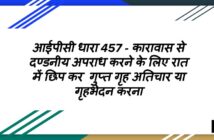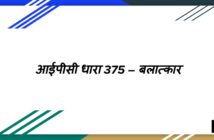Recently, the Supreme Court has put a stay on Sedition law. Sedition law has been in the news for quite a long time. This article will discuss what sedition law is, its origin, constitutional validity, how it is misused by the State and Supreme Court’s view on sedition law, and why the Court put a stay on sedition law.
Origin of Sedition Law
Sedition law was first introduced in 1837 by a British politician named Thomas Babington Macaulay. Initially, the sedition law was used to suppress the freedom of speech and writing of freedom fighters and Indian nationalists.
Suppose a person is booked for sedition charges, i.e., spreading hatred and enmity against the government or State. In that case, they will be punished and fined as provided by the law. Additionally, that person’s passport will be seized. Finally, if the person is a government employee, he will be expelled from the job.
In 2010, the UK government abolished the Sedition law. However, in India, the sedition law persists. But recently, the Supreme Court has directed the government to look into the old colonial law and give its opinion on whether it is needed in a democratic country or not.
What is Sedition Law?
Chapter VI (Offences against the State) under Section 124A of IPC deals with sedition. It states that if a person brings or tries to bring hatred or contempt, or excites or tries to excite disaffection, disloyalty, or enmity against the government either by words (written or spoken) or by visual expression or signs, then such person shall be punished under the law.
Sedition law helps the government fight against hatred, enmity, and anti-nationalist, terrorist, and separatist factors. It enables the government to maintain its legitimacy.
How is sedition punishable by law?
Any person charged under Section 124A of IPC will be punished with three years of imprisonment, a fine, or both. It is a non-bailable and cognizable offense tried before the Session court.
Constitutional Validity of Section 124A of IPC
Section 124A has faced criticism after independence stating that it violates freedom of expression. The constitutional validity of Section 124A of IPC has been questioned in many cases.
Kedar Nath Singh Vs. State of Bihar (1962)
In this case, the Court upheld the constitutional validity of section 124A of IPC. It held that any activities that criticize the government policies, measures, or actions, no matter how strongly it is worded, should be within reasonable limits and consistent with the freedom of speech and expression. The Court had further held that Section 124A of IPC can be invoked only if these activities or actions create hatred or where peace and harmony are disturbed by violent activities.
Balwant Singh and Anr. Vs. State of Punjab
In this case, sedition charges were made against people who were raising the “Khalistan Zindabad” slogan after the assassination of Indira Gandhi. However, the Court had held that mere raising slogans did not disturb the public peace and harmony; therefore, the charges were unsustainable.
Misuse of Section 124A by States
States have invoked Section 124A of IPC for any reason whatsoever against people who have criticized the government’s actions. As a result, there is a rise in cases against the invocation of Section 124A of IPC, stating that it is violative of freedom of speech and expression and should be protected under Article 19 (1) (a) of the Constitution.
In many cases, the Court has pointed out instances where Section 124A can be invoked. Still, the government is misusing Section 124A. Section 124A is a potent tool for the government, but it should not be used to silence a person who has genuinely expressed their opinion against the wrongful action of the State.
Recent Sedition Cases
As per the National Crime Records Bureau (NCRB) report, in 2018, the number of sedition cases filed was 70, and none got convicted. Similarly, in 2019, there were 93 sedition cases filed, of which only two were convicted. Also, in 2020, there were 73 sedition cases filed, of which, again, no one was convicted. In 2020, Manipur state had the highest number of sedition cases, i.e., 15 cases.
Some of the recent cases where sedition charges were invoked are:
- Sedition charges were invoked against environmental activist Disha Ravi who shared a “toolkit” protesting for a global online campaign that supported the farmer’s protest.
- Sedition charges were made against Umar Khalid, Devangana Kalita, Sharjeel Imam, Ishrat Jahan, Natasha Narwal, Meeran Haidar, Safoora Zargar, and Asif Iqbal Tanha for making the allegedly inflammatory remarks at anti-CAA meetings and premeditated conspiracy to create riots in Delhi.
- Sedition charges were made against activists Vernon Gonsalves, Sudha Bharadwaj, Varavara Rao, Anand Teltumbde, Hany Babu, Shoma Sen, Surendra Gadling, Gautam Navlakha, Late Father Stan Swamy, Rona Wilson, Sudhir Dhawale, Arun Ferreira, and Mahesh Raut on the occasion of 200th Anniversary of the 1818 battle where speeches were delivered at the Elgaar Parishad meeting after the violence in Bhima Koregan.
Kishorechandra Wangkhemcha & Anr Vs. Union Of India (2021)
In this case, two journalists, Kishorechandra Wangkhemcha and Kanhaiya Lal Shukla posted cartoons and posts on social media platforms. Therefore, they were accused of committing sedition. Hence, they had filed a writ petition to challenge the constitutional validity of Section 124A of IPC. The matter is pending before the Court.
Vinod Dua Vs Union of India (2021)
In this case, Vinod Dua had made a critical statement against the government with regard to the COVID crisis and voting tactics utilized by the government on his YouTube channel called The Vinod Dua Show.
The Court had held that the words used by the accused were mere expressions of disapproval of government measures so that the covid crisis could be resolved in a swift and efficient manner. It was not intended to disturb public peace and create disharmony.
Supreme Court view on Sedition law
Chief Justice N.V. Ramana stated that sedition is a colonial law that suppresses the freedom guaranteed by the Constitution and whether it is necessary after 75 years of independence. CJI further noted that the executive agencies are misusing sedition as the number of cases registered is more than the conviction rate.
Why did Supreme Court put a stay on sedition law?
A plea was filed by the Editors Guild of India and Major General (Retired) S.G. Vombatkere, stating that the sedition law causes restrictions on fundamental rights guaranteed under Article 19 of the Constitution (i.e., freedom of speech and expression). Therefore, the Supreme Court had directed the Centre and the State to not register any fresh FIR for sedition charges and stay on all the proceedings relating to sedition charges until the government re-examines Section 124A of IPC. And the pending sedition cases would be decided by the judicial forum to hear the bail pleas.
Conclusion
Section 124A of IPC deals with sedition law; it states that if any person by words, whether written or spoken, or by sign, or by visual representation, brings any hatred or contempt or disaffection against the government, then such person shall be punished with three years’ imprisonment or with fine or with both. Sedition law is an essential tool, but the government has misused it. The State has misused section 124A of IPC. The Supreme Court, in various cases, has put forward the situations when Section 124A of IPC can be invoked. In a petition filed by the Editors Guild of India and Major General (Retired) S.G. Vombatkere, the Supreme Court had made an interim order directing a stay on the application of Sedition law and directed the government to re-examine the applicability of Section 124A.

